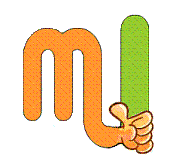| Pages in topic: [1 2] > |
Poll: Does being a good translator depend on nature or nurture? Thread poster: ProZ.com Staff
|
|---|
This forum topic is for the discussion of the poll question "Does being a good translator depend on nature or nurture?".
View the poll here
A forum topic will appear each time a new poll is run. For more information, see: http://proz.com/topic/33629
| | | |
| I think it's nature | Oct 26, 2007 |
I believe it's like being a musician or a painter. You are born with it. In our case, with a natural inclination towards languages. And that's why we have people here who translate excellent wihout even having studied any translation or interpretation courses, and on the other hand people with master's degrees and members of a school of translators whose translations are a horror!
| | | |
John Cutler 
Spain
Local time: 17:39
Spanish to English
+ ...
| Both, but... | Oct 26, 2007 |
I think it's both, but as Cristina mentions without the "nature" (natural combination of abilities) the nurture (studying, making an effort to learn, gaining experience) would be useless.
Lots of people play musical instruments without ever having studied a note of music, but if it hadn't been a natural ability they possessed, they never would have succeeded. I also think that one of the reasons why most freelance translators would say they like or love their work is because they’... See more I think it's both, but as Cristina mentions without the "nature" (natural combination of abilities) the nurture (studying, making an effort to learn, gaining experience) would be useless.
Lots of people play musical instruments without ever having studied a note of music, but if it hadn't been a natural ability they possessed, they never would have succeeded. I also think that one of the reasons why most freelance translators would say they like or love their work is because they’re fulfilling their genetic “calling”. In other words, they’re doing something that nature has pre-wired them to do. Their work becomes a natural expression of who or what they are. Like all artistic type work, it may not lead to getting rich, but it does lead to a sense of fulfillment.
I suppose some sort of "super" translator would be one who has the natural ability and then undertakes studies in translating.
[Editado a las 2007-10-26 15:09] ▲ Collapse
| | | |
Nesrin 
United Kingdom
Local time: 16:39
English to Arabic
+ ...
| Both of course, but... | Oct 26, 2007 |
I think the question would have made more sense if it was "Does... depend MORE on nature or nurture?", in which case I think the answer is "nature", for the reason mentioned by Cristina, but also because it takes certain qualities such as diligence, conscientiousness, patience etc, which just can't be taught.
Obviously you aren't born a speaker of any language, so it goes without saying that nurture is needed as well.
| | |
|
|
|
Hipyan Nopri 
Indonesia
Local time: 22:39
Member (2005)
English to Indonesian
+ ...
| First, Nature; Second, Nurture | Oct 26, 2007 |
In my understanding, nature refers to talent and skill, and nurture refers to training and experience. Existence of the latter without sufficient existence of the former results in poor translator. Existence of the former without sufficient existence of the latter results in poor translator too. Sufficient existence of the former and the latter results in good translator.
[Edited at 2007-10-26 15:38]
| | | |
| Mostly nurture | Oct 26, 2007 |
While I do think some people are more "language-minded" than others (I certainly haven't got a maths brain!), I think most of it is nurture. Your environment shapes you to a HUGE extent.
Having read a bit about language-learning and early education, I know that language acquisition abilities are more or less determined by the age of 3, after which the requisite brain pathways "die off" if they are unused. Severely neglected children or feral children, for example, often have langua... See more While I do think some people are more "language-minded" than others (I certainly haven't got a maths brain!), I think most of it is nurture. Your environment shapes you to a HUGE extent.
Having read a bit about language-learning and early education, I know that language acquisition abilities are more or less determined by the age of 3, after which the requisite brain pathways "die off" if they are unused. Severely neglected children or feral children, for example, often have language-learning difficulties, even after years of exposure to human speech in later life.
I was raised by parents with a great interest in language, reading and writing, and I was reading by the age of two. I find it very easy to pick up foreign languages and am an excellent speller. On the other hand, I struggled tremendously with maths and science, barely scraping the grades I needed to get to university. My parents were not interested in these subjects, and I remember them struggling to help me with maths homework as a teenager. Have I inherited a "language brain" from them, or could I have been a mathematical genius if that side of my education had been as thorough as the language side?
Interesting poll! ▲ Collapse
| | | |
Silvina Matheu 
Argentina
Local time: 12:39
Member
English to Spanish
+ ...
I know some people who have the knack of learning languages, others who are bilingual for familiy reasons, but are not good translators. Even some schoolmates of mine who are now teaching English because they do not like the research stage of our job. So you need a basis of nature on which you build yourself as a translator by adding culture, training, experience... A translator should be like a sponge.
| | | |
Mariam Osmann
Egypt
Local time: 17:39
Member (2007)
English to Arabic
+ ...
| agree with all of the above | Oct 26, 2007 |
ya some raised bilingual and even trilingual and hate translation. They find it boring.
On the other hand, some lack what I describe as the flexibility to deal with the field and semantics, especially within a team composed of linguistics specialists and translators who specialize in field. Some linguistics stick to the dictionary and refuse any kind of technical or scientific explanation. Being linguophile by nature is not enough, the translator have to be flexible, open minded an... See more ya some raised bilingual and even trilingual and hate translation. They find it boring.
On the other hand, some lack what I describe as the flexibility to deal with the field and semantics, especially within a team composed of linguistics specialists and translators who specialize in field. Some linguistics stick to the dictionary and refuse any kind of technical or scientific explanation. Being linguophile by nature is not enough, the translator have to be flexible, open minded and eager to learn and get nurture all the time. ▲ Collapse
| | |
|
|
|
| Both... - Quod Natura non dat, Salamanca non prestat. | Oct 26, 2007 |
Quod Natura non dat, Salamanca non prestat.
Nature includes attitude, hard work and perseverance, etc.
Nurture: studies, curiosity, searching skills, etc.
[Edited at 2007-10-26 19:40]
| | | |
Beatriz Galiano (X)
Argentina
Local time: 12:39
English to Spanish
+ ...
This is one of the cases where both, nature and nurture are needed, simply because only one of them would leave you incomplete. Like my colleagues, I have seen plenty of cases of excellent speakers who do not make excellent translators and viceversa. A natural gift for language translation is important, but you can compensate that with adquired skills to such a point that the results, although different, are not at all very far from each other.
But relying on only one of these, wil... See more This is one of the cases where both, nature and nurture are needed, simply because only one of them would leave you incomplete. Like my colleagues, I have seen plenty of cases of excellent speakers who do not make excellent translators and viceversa. A natural gift for language translation is important, but you can compensate that with adquired skills to such a point that the results, although different, are not at all very far from each other.
But relying on only one of these, will not make a great translator, you have to work a sweat, so to say. ▲ Collapse
| | | |
Steven Capsuto 
United States
Local time: 11:39
Member (2004)
Spanish to English
+ ...
| Certainly nurture is part of it | Oct 26, 2007 |
If you're not exposed to other languages in childhood, chances are you won't become a translator, good or otherwise. I think my interest in languages and translation comes from having lived overseas briefly as a child and also having older relatives who switched into Spanish when they didn't want us to know what they were saying. Also, books were an important part of my childhood, and that helps develop a knack for working with words.
| | | |
Parrot 
Spain
Local time: 17:39
Spanish to English
+ ...
| I thought it was more nurture | Oct 26, 2007 |
but that's probably because I can't presume anything about the "clean slate" a baby starts with. I DO know very young children can be predisposed (as they can also be discouraged). But I tend to think babies are capable of anything, and then we spoil them one way or another.
Being born into a family without hangups about foreigners and strange languages is certainly an advantage.
The negative reinforcement can even come from well-meaning grammar teachers.
B... See more but that's probably because I can't presume anything about the "clean slate" a baby starts with. I DO know very young children can be predisposed (as they can also be discouraged). But I tend to think babies are capable of anything, and then we spoil them one way or another.
Being born into a family without hangups about foreigners and strange languages is certainly an advantage.
The negative reinforcement can even come from well-meaning grammar teachers.
But I can't flatly say some children have more language brain mechanisms than others. I've been an art educator, and I know the born "gifted genius" is a traceable myth. ▲ Collapse
| | |
|
|
|
mediamatrix (X)
Local time: 11:39
Spanish to English
+ ...
| Nature? Nurture? --> Neither! | Oct 27, 2007 |
It's a simple matter of NECESSITY.
MediaMatrix
[Edited at 2007-10-27 00:56]
| | | |
Beatriz Galiano (X)
Argentina
Local time: 12:39
English to Spanish
+ ...
| Linguistic skills | Oct 27, 2007 |
Having innate linguistic skills is certainly an advantage, but there are other skills, spacial, visual, etc, that might also help you when it comes to translation. We are born with multiple-different intelligences or skills, and the combination they acquire inside each of our minds differ, making it all too complex to describe why your translations are good or not. Multiple factors are at work when we decide how to translate something, in general we kind of agree except for a word or two, some o... See more Having innate linguistic skills is certainly an advantage, but there are other skills, spacial, visual, etc, that might also help you when it comes to translation. We are born with multiple-different intelligences or skills, and the combination they acquire inside each of our minds differ, making it all too complex to describe why your translations are good or not. Multiple factors are at work when we decide how to translate something, in general we kind of agree except for a word or two, some other times answers differ so much because of our different interpretations, experiences, native language interference or even knowledge of the subject. ▲ Collapse
| | | |
Williamson 
United Kingdom
Local time: 16:39
Flemish to English
+ ...
I like the sound of Japanese and Chinese. However, I have never studied either of these languages at university level. So, thanks to my "nature", I will be able to translate from Japanese/Chinese>my native language.
B.T.W: Math (analysis, trigonometry, statistics, topology,...)is a language of its kind with its own rules (syntax).
--
Freelance translation: A business which has nothing to do with nature/nurture or love, but with €/£/$ and all other currencies of the world.... See more I like the sound of Japanese and Chinese. However, I have never studied either of these languages at university level. So, thanks to my "nature", I will be able to translate from Japanese/Chinese>my native language.
B.T.W: Math (analysis, trigonometry, statistics, topology,...)is a language of its kind with its own rules (syntax).
--
Freelance translation: A business which has nothing to do with nature/nurture or love, but with €/£/$ and all other currencies of the world.
[Edited at 2007-10-27 10:14] ▲ Collapse
| | | |
| Pages in topic: [1 2] > |
























